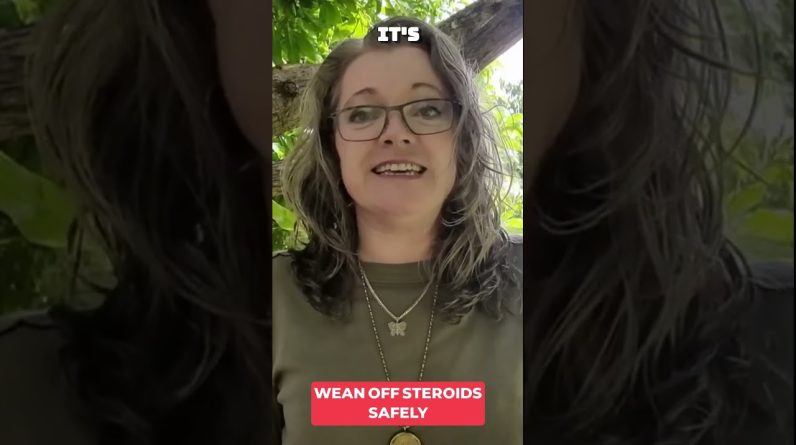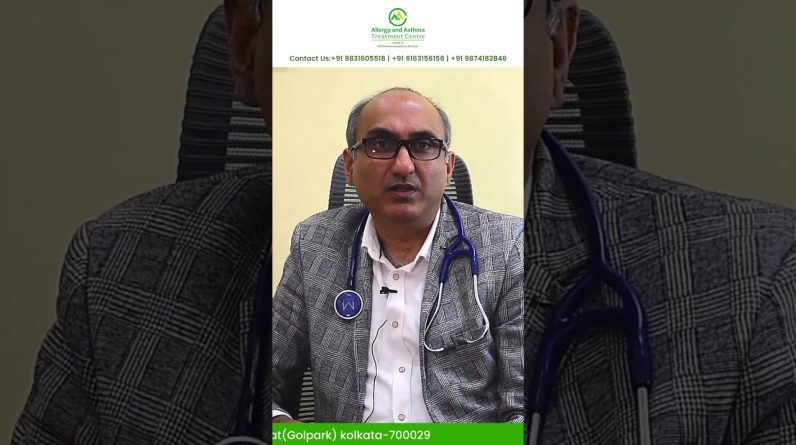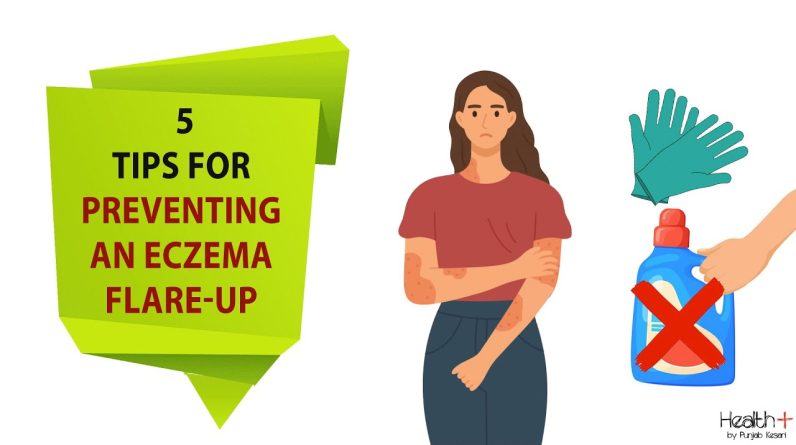Eczema is a condition where patches of skin become inflamed, itchy, red, cracked, and rough. Blisters can also occur. It affects a large section of the American population to a lesser or greater degree.
The word eczema is also used specifically to refer to atopic dermatitis, the most common type of eczema.
In this video, we will explain what eczema is and discuss the causes, symptoms, and treatments.
The specific cause of eczema remains unknown, but it is believed to develop due to a combination of hereditary (genetic) and environmental factors.
Children are more likely to develop eczema if a parent has had it or another atopic disease. If both parents have an atopic disease, the chances increase further.
Environmental factors are also known to bring out the symptoms of eczema. These include:
Irritants – soaps, detergents, shampoos, disinfectants, juices from fresh fruits, meats, or vegetables
Allergens – dust mites, pets, pollens, mold, dandruff
Microbes – bacteria such as Staphylococcus aureus, viruses, certain fungi
Hot and cold temperatures – hot weather, high and low humidity, perspiration from exercise
Foods – dairy products, eggs, nuts and seeds, soy products, wheat
Stress – it is not a cause of eczema but can make symptoms worse
Hormones – women can experience worsening of eczema symptoms at times when their hormone levels are changing, for example during pregnancy and at certain points in their menstrual cycle
Atopic dermatitis commonly manifests itself in infants with dry and scaly patches appearing on the skin. These patches are often intensely itchy. The symptoms of atopic dermatitis can vary, depending on the age of the person with the condition.
Most people develop atopic dermatitis before the age of 5. Half of those who develop the condition in childhood continue to have symptoms as an adult, though these symptoms are often different to those experienced by children.
People with the condition will often experience periods of time where their symptoms will flare up or worsen, followed by periods of time where their symptoms will improve or clear up.
Infants:
Rashes commonly appear on scalp and cheeks.
Rashes usually bubble up before weeping fluid.
Rashes can cause extreme itchiness, which may lead to trouble sleeping. Continuous rubbing and scratching can lead to skin infections.
Children, from 2 years old to puberty:
Rashes commonly appear behind the creases of elbows or knees
Also common on neck, wrists, ankles, crease between buttock and legs
Over time, the following symptoms can manifest:
Rashes can become bumpy, like goosebumps
Rashes can lighten or darken in color
Rashes can thicken (also known as lichenification) and then develop knots and a permanent itch
Adults:
Rashes commonly appear in creases of elbows or knees or nape of neck
Rashes cover much of the body
Rashes can be especially prominent on neck, face, and around the eyes
Rashes can cause very dry skin
Rashes can be permanently itchy
Rashes can cause scaly skin (more scaly than in children)
Rashes can lead to skin infections
There are numerous things that people with eczema can do to support skin health and alleviate symptoms, such as:
Taking regular warm baths
Applying moisturizer within 3 minutes of bathing to “lock in” moisture
Moisturizing every day
Wearing cotton and soft fabrics, avoiding rough, scratchy fibers, and tight-fitting clothing
Using mild soap or a non-soap cleanser when washing
Air drying or gently patting skin dry with a towel, rather than rubbing skin dry after bathing
Avoiding rapid changes of temperature and activities that make you sweat (where possible)
Learning individual eczema triggers and avoiding them
Using a humidifier in dry or cold weather
Keeping fingernails short to prevent scratching from breaking skin
There are several medications that can be prescribed by doctors to treat the symptoms of eczema:
Topical corticosteroid creams and ointments – these are a type of anti-inflammatory medication and should relieve the main symptoms of eczema, such as skin inflammation and itchiness.
If ineffective, systemic corticosteroids can be prescribed. These are either injected or taken by mouth; they are only used for short periods of time.
Antibiotics if there is an overlying bacterial skin infection.
Medications to treat fungal and viral infections.
Antihistamines that cause drowsiness are often recommended as these can help to reduce the risk of night-time scratching.
Topical calcineurin inhibitors – a type of drug that suppresses the activities of the immune system; it decreases inflammation and helps prevent flare-ups.
Barrier repair moisturizers – these reduce water loss and work to repair the skin.
If you have enjoyed this video than don’t forget to LIKE, SHARE & COMMENT!!








